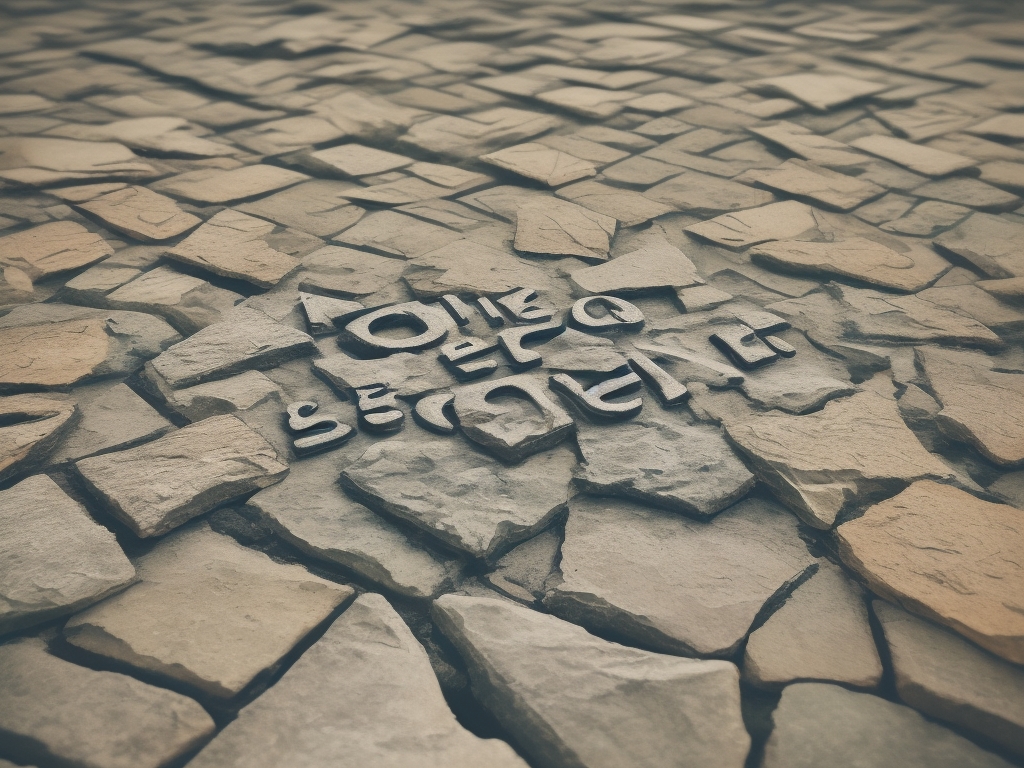Finding free resources for your recovery journey can be a game-changer, especially when you’re new to Alcoholics Anonymous or working with limited finances. Many members don’t realize just how many free AA literature options exist beyond what’s immediately visible at meetings. The wealth of recovery resources available at no cost is truly remarkable, from the foundational Big Book to specialized pamphlets addressing specific aspects of sobriety. This comprehensive guide will explore both well-known and lesser-known sources of free AA literature, ensuring you have access to the materials that can support your recovery without straining your budget.
Understanding HA Literature Basics
Before diving into where to find free resources, it’s important to understand what constitutes Alcoholics Anonymous literature and how different materials serve various purposes in recovery. AA World Services publishes a wide range of materials designed to support members at every stage of their sobriety journey.
Core Literature vs. Supplemental Resources
Alcoholics Anonymous literature falls into two main categories: core texts that form the foundation of the program and supplemental materials that address specific topics or needs. Understanding this distinction helps you prioritize what to seek out first.
| Core AA Literature | Supplemental Resources |
|---|---|
| Alcoholics Anonymous (Big Book) | Living Sober |
| Twelve Steps and Twelve Traditions (12 & 12) | Daily Reflections |
| As Bill Sees It | AA Pamphlets (various topics) |
| Dr. Bob and the Good Oldtimers | Grapevine publications |
| Pass It On | AA speaker recordings |
The Big Book and the Twelve Steps and Twelve Traditions are considered essential reading for anyone in AA. These core texts outline the program’s principles and provide the foundation for recovery. Supplemental materials like pamphlets and the Living Sober book offer practical advice for navigating specific challenges in sobriety.
Digital vs. Print Options
AA literature is available in multiple formats, each with distinct advantages. Digital options provide immediate access and portability, while print materials offer a tangible experience many find valuable in their recovery process.
Digital formats include PDF downloads, e-books, and audio recordings, all of which can be accessed through various platforms. Many members appreciate having the Big Book or daily reflections available on their phones for quick reference during difficult moments.
Print materials remain popular despite the digital age. There’s something meaningful about highlighting passages in your physical copy of the Twelve Steps or sharing a pamphlet with a newcomer. While print materials sometimes come with costs, this guide will show you how to access them for free.
Official HA Sources for Free Literature
Alcoholics Anonymous offers numerous official channels for accessing free literature. These resources come directly from AA World Services and represent the organization’s approved materials.
HA Website Downloads
The official Alcoholics Anonymous website is a treasure trove of free recovery resources that many members overlook. The site offers numerous pamphlets, guidelines, and even portions of core texts as free PDF downloads.
Visit the AA.org literature section to find downloadable pamphlets covering topics from sponsorship to maintaining sobriety during holidays. While the complete Big Book isn’t available as a free download due to copyright considerations, significant excerpts including the first 164 pages can often be found through official channels.
The website also provides free access to AA history materials and archives that can deepen your understanding of the program’s development. These resources offer valuable context for the principles and practices that form the foundation of recovery in Alcoholics Anonymous.
HA App Resources
The official AA app has become an increasingly valuable source of free sobriety materials. Available for both iOS and Android devices, the app provides access to a surprising amount of literature at no cost.
Within the app, you’ll find daily reflections, meeting finder tools, and selected readings from AA publications. The app regularly updates with new content, making it worth checking frequently for additional recovery resources.
Some regional AA entities have developed their own apps with even more extensive free literature offerings. Check if your local intergroup or area has a dedicated app that might provide access to additional materials beyond what the main AA app offers.
Email Subscription Services
Several AA-affiliated services offer free daily emails featuring excerpts from Alcoholics Anonymous literature. These subscription services deliver recovery content directly to your inbox, making it easy to incorporate program principles into your daily routine.
Sign up for daily reflection emails that feature passages from the Big Book, Twelve Steps and Twelve Traditions, or other AA publications. These bite-sized pieces of wisdom can provide just the right message when you need it most.

Some email services also offer weekly or monthly newsletters containing longer excerpts from Grapevine publications or other AA resources. These free subscriptions represent an often-overlooked way to consistently receive fresh recovery content without any financial investment.
Local Meeting Resources Often Overlooked
While online resources are valuable, local AA meetings offer unique opportunities to access free literature that many newcomers don’t fully utilize. Building connections with your local fellowship can open doors to numerous free resources.
Literature Libraries at Meetings
Many AA groups maintain lending libraries of recovery workbooks and other materials that members can borrow at no cost. These libraries often include not just the Big Book and 12 & 12, but also less common texts that might be expensive to purchase individually.
Ask your home group about their literature library policy. Some groups allow indefinite borrowing of materials, while others have specific return timeframes. Either way, these libraries represent an excellent opportunity to access a wide range of AA literature without spending money.
Some meetings also maintain collections of Grapevine magazines or speaker recordings that members can borrow. These resources provide diverse perspectives on recovery and can be particularly helpful when you’re seeking inspiration or working through specific challenges in your sobriety journey.
Group Literature Representatives
Every AA group has a literature representative responsible for maintaining the group’s materials. These individuals often have access to resources that aren’t widely advertised and can be invaluable allies in your search for free literature.
Introduce yourself to your group’s literature representative and explain your interest in accessing more recovery resources. They can often provide newcomer packets containing essential pamphlets and may know about upcoming literature giveaways or exchanges.
Literature representatives frequently receive sample materials or excess inventory that they’re authorized to distribute at no cost. By building a relationship with this person, you position yourself to be informed when such opportunities arise.
Online Communities and Sharing Platforms
Beyond official AA channels, numerous online communities have emerged where members share recovery resources with each other. These platforms can provide access to materials that might otherwise be difficult to find.
HA Forums and Discussion Boards
Several forums dedicated to Alcoholics Anonymous recovery exist where members share links to free literature and discuss how different texts have supported their sobriety. These communities often maintain resource libraries with links to free PDF downloads of AA materials.
When participating in these forums, be mindful of copyright considerations. While sharing personal experiences with AA literature is encouraged, distributing complete copyrighted works may violate intellectual property laws. Most forums have guidelines about what can be appropriately shared.
Look for discussion threads specifically focused on literature recommendations. Members often share which free resources were most helpful at different stages of recovery, providing valuable guidance as you build your own library of sobriety materials.
Social Media Groups
Closed social media groups focused on AA recovery can be excellent sources of free literature recommendations and sometimes the materials themselves. These groups often share information about limited-time offers for free downloads or physical materials.
Join recovery-focused groups on platforms like Facebook, where members frequently post about literature giveaways or exchange opportunities. Some groups organize literature swaps where members can trade materials they’ve already read for new ones.
Be cautious about the sources of materials shared in these groups. Stick to officially published AA literature rather than interpretations or unauthorized adaptations that may not accurately represent the program’s principles.
Public Resources for HA Literature
Several public institutions provide access to Alcoholics Anonymous literature that many people overlook. These resources can be particularly valuable for those who prefer physical books or who have limited internet access.
Libraries and Community Centers
Public libraries typically carry copies of the Big Book, Twelve Steps and Twelve Traditions, and other core AA texts. Many libraries also maintain collections of recovery stories and historical works about the development of Alcoholics Anonymous.

Use your library card to check out these materials for extended periods. If your local library doesn’t have a particular AA publication you’re seeking, ask about interlibrary loan services that can source it from another location.
Community centers, particularly those that host AA meetings, often maintain small libraries of recovery literature available for public use. These collections sometimes include harder-to-find items like archived Grapevine publications or historical AA documents.
Treatment Centers and Healthcare Providers
Treatment facilities frequently receive donations of AA literature and make these materials available to clients and alumni. Even if you haven’t been through treatment, many centers will provide free pamphlets or basic texts upon request.
Healthcare providers who specialize in addiction medicine often maintain collections of recovery resources in their waiting rooms. Ask your doctor or therapist if they have access to AA pamphlets or other sobriety materials they can share.
Some treatment centers host regular literature study groups open to the community where materials are provided for participants. These groups offer both free access to texts and valuable guidance on how to apply their principles in recovery.
Conclusion
Accessing free Alcoholics Anonymous literature doesn’t have to be challenging once you know where to look. From official AA sources to community resources, numerous options exist for building your recovery library without financial strain. The Big Book, Twelve Steps and Twelve Traditions, and countless other valuable resources can be obtained through the channels described in this guide.
Remember that the purpose of AA literature is to support your sobriety journey through shared experience, strength, and hope. Whether you access these materials digitally or in print, their value lies in how you apply their wisdom to your recovery. Don’t hesitate to ask more experienced members for guidance on which resources might be most helpful for your specific situation.
By taking advantage of these often-overlooked sources of free AA literature, you can deepen your understanding of the program and strengthen your foundation in recovery. The investment of time in seeking out these resources pays dividends in the form of enhanced sobriety and a more profound connection to the principles of Alcoholics Anonymous.
FAQ
Is it legal to download PDF versions of AA literature found online? Only if they’re provided through official AA channels or represent materials where copyright has expired; unauthorized reproductions of copyrighted AA literature violate intellectual property laws.
Can I get a free copy of the Big Book if I can’t afford to purchase one? Yes, many AA groups provide free copies to newcomers who cannot afford them, or you can borrow one from your group’s literature library.
How do I know if the free AA literature I found online is authentic? Authentic AA literature will be clearly marked as published by AA World Services or the AA Grapevine, and official digital versions will typically be accessed through AA.org or affiliated intergroup websites.
Are AA speaker recordings considered official AA literature? While not officially published literature, speaker recordings are valuable recovery resources often made available with the speaker’s permission through official AA channels and archives.
Facebook
Twitter
LinkedIn
Reddit
Facebook
Twitter
LinkedIn
Reddit
